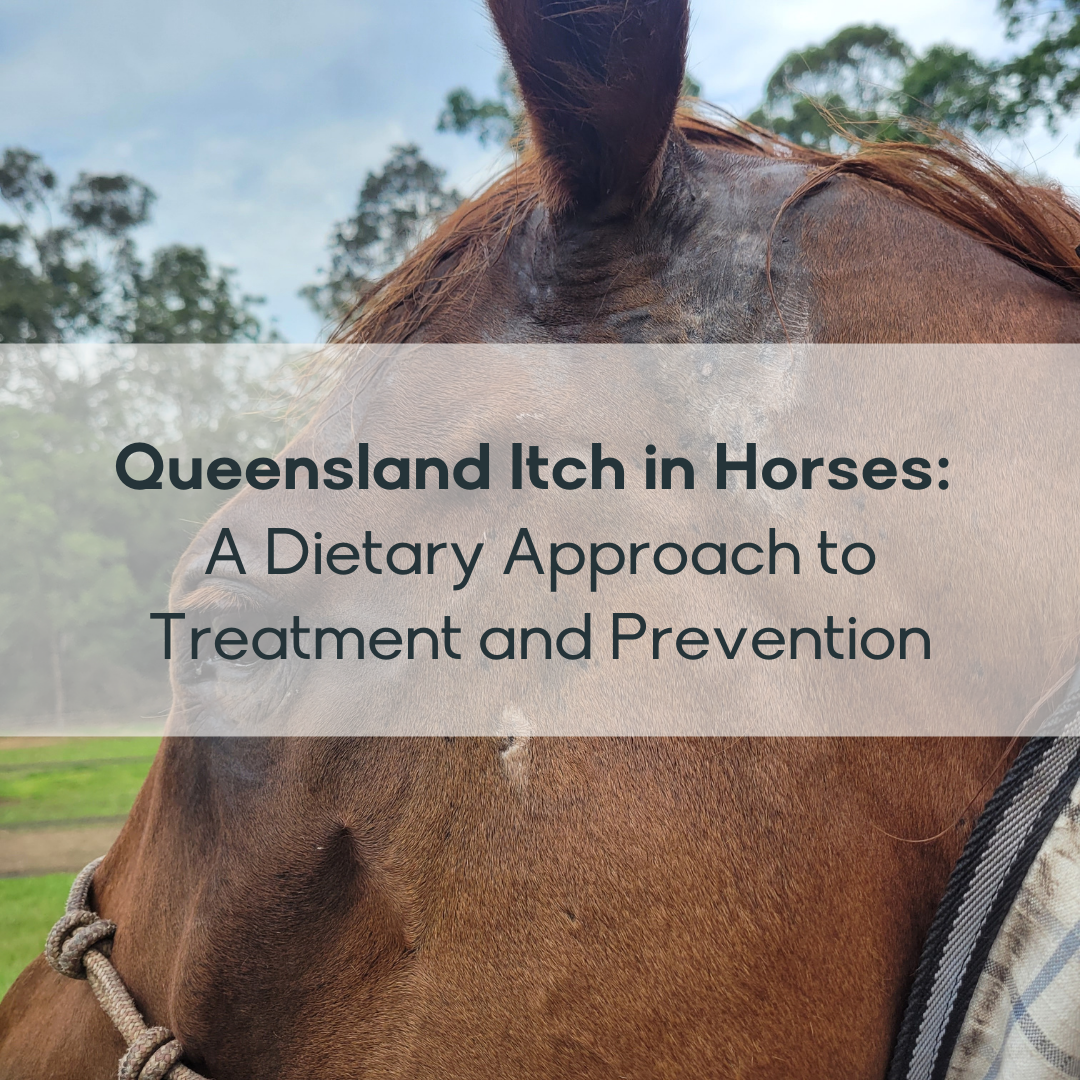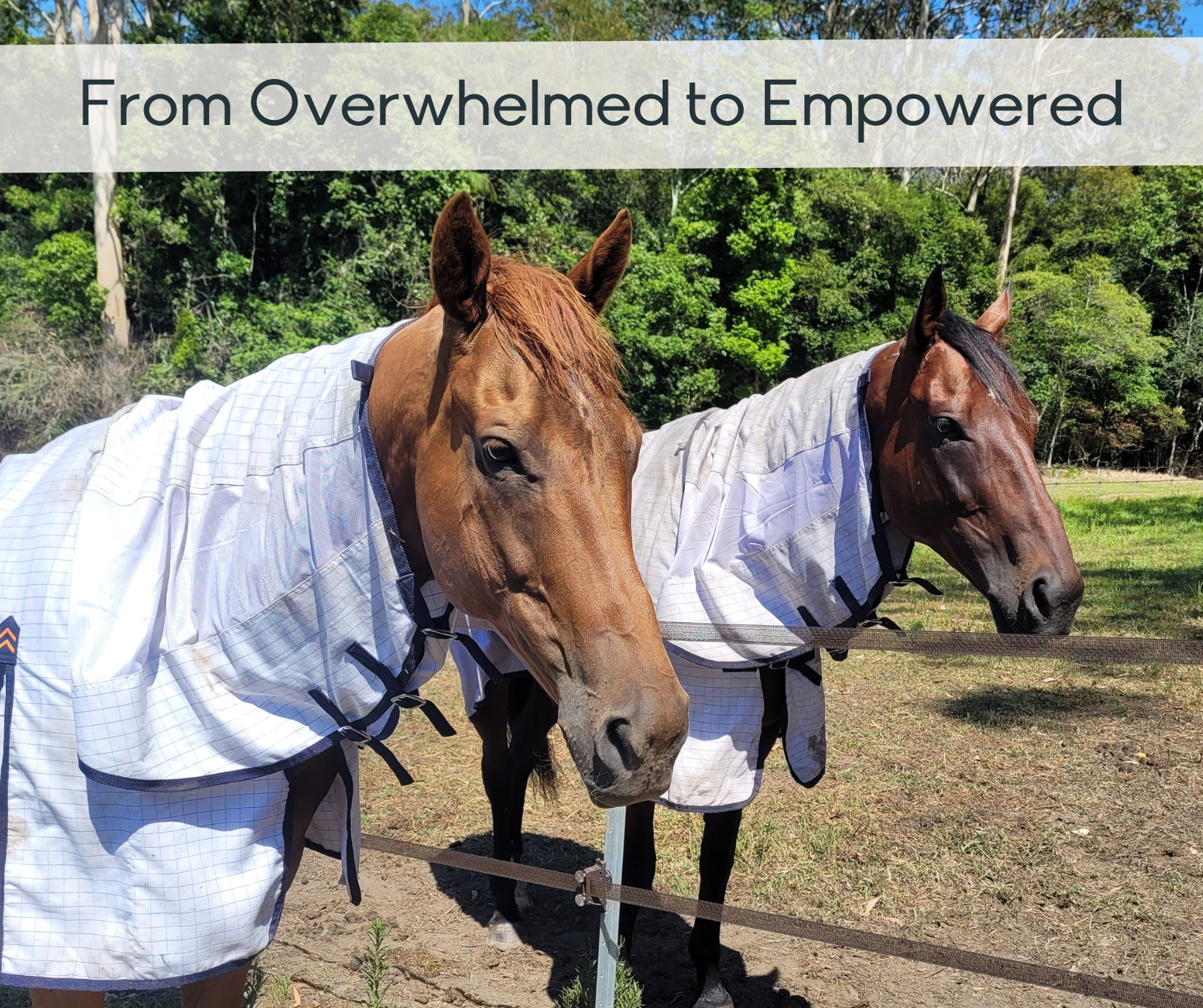
Managing Equine Gastric Ulcers with Bodywork and Nutrition
Proper Nutrition is vital for all horses' overall health and performance. Nutrition impacts everything from immune systems, bone health and energy levels as well their ability to recover from exercise. Nutrition will be different for all horses based on their age, activity levels, behavioral issues etc. Every horse requires a balanced diet that is tailored to its specific requirements, this is something Statera Equine can offer.

Why Foal Nutrition Matters More Than You Think
Foal nutrition starts long before they take their first wobbly steps—and getting it right can set the stage for a lifetime of soundness, growth, and success. In this blog, I break down the key stages of feeding foals (and their mums), common mistakes to avoid, and what you really need to know to support healthy development. Whether you're raising a future athlete or a beloved paddock pony, this is one area you don’t want to guess your way through.

Queensland Itch in Horses: A Dietary Approach to Treatment and Prevention
Queensland Itch, also known as Sweet Itch or Summer Itch, is a frustrating and often debilitating condition for horses, particularly in warm, humid climates. Caused by hypersensitivity to bites from Culicoides midges, it leads to relentless itching, skin irritation, and even hair loss. While environmental management and topical treatments play a role in reducing symptoms, equine nutrition is a powerful yet often overlooked tool in managing this condition.

Balancing Calcium and Phosphorus in Your Horse's Diet: Why It Matters More Than You Think
The Hidden Balancing Act
When it comes to equine nutrition, it’s easy to get lost in the sea of supplements and feeding trends. But at the core of every healthy horse’s diet lies a crucial mineral duo: calcium and phosphorus. While horse owners often focus on protein percentages and energy levels, the calcium-phosphorus balance can quietly make or break your horse’s health.
The truth is, it’s not just about feeding enough of these minerals—it’s about feeding them in the right ratio. This ratio is fundamental for bone health, growth, and overall performance, yet it’s commonly overlooked.

Acidosis and Laminitis: What Every Horse Owner Should Know
When it comes to equine health, few topics are as complex and concerning as the connection between hindgut acidosis and laminitis. As someone who frequently encounters laminitis-related concerns from my clients, I find this to be a particularly pressing issue in horse care. Recently, I came across an article titled "All You Need to Know About Acidosis Laminitis" (October 26, 2023), which dives deep into the intricate relationships between diet, gut health, and laminitis. This blog breaks down the key points of the article and explores how its insights can help horse owners better manage and prevent these potentially life-threatening conditions.

Glutamine for Horses
Glutamine, an amino acid found abundantly in the body, plays a crucial role in maintaining overall health and performance. In horses, it is categorised as a "conditionally essential" amino acid, meaning its demand may increase during stress, illness, or intense exercise. Let’s explore what glutamine does in a horse’s body, its benefits, and when supplementation might be beneficial.

From Overwhelmed to Empowered: Simplifying Equine Nutrition for Your Horse's Health
Deep down, I think I always knew I had a passion for equine nutrition. I’d find myself reading the back of feed bags, thinking, “I hope I’m getting this right… but what if I’m not?” It was overwhelming sometimes. With so many opinions and advice from riders, vets, and professionals in the equine space, it felt impossible to know what was truly correct. How could all this conflicting advice coexist if they were all supposed to be right?

Summer Horse Care, Feeding and Health Tips for Hot, Humid Weather
Discover essential tips for feeding and caring for horses in hot, humid weather. Learn about hydration, electrolytes, and maintaining optimal horse health during summer months. Perfect for Australian horse owners navigating the challenges of a tropical climate. Read now

Unlocking Equine Health: Study-Backed Benefits of Bovine Colostrum for Immune Support, Recovery, and Performance
The Benefits of Bovine Colostrum for Equine Health and Performance
Bovine colostrum, a nutrient-dense fluid produced by cows shortly after giving birth, is gaining recognition for its potential benefits in equine care and performance. The unique bioactive compounds in bovine colostrum have shown promise in enhancing immune function, reducing inflammation, and supporting recovery in horses. Here, I review findings from recent studies that highlight how bovine colostrum can support various aspects of equine health and performance.

Addressing Equine Skin and Coat Health with Bovine Colostrum
From helping manage skin sensitivities to promoting a radiant coat, bovine colostrum offers a natural solution that supports equine skin and coat health at its foundation. As it enhances immune function, aids in skin repair, and improves digestion, this nutrient-dense supplement can become a valuable part of your horse’s wellness routine. If you’re looking to support your horse’s skin and coat from the inside out, bovine colostrum might just be the natural answer you've been searching for.
